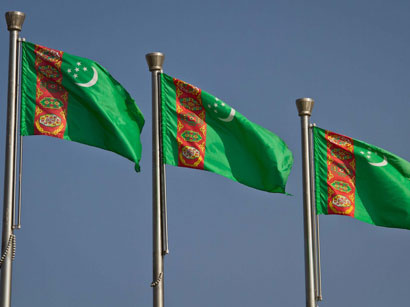Turkmenistan starts nominating candidates to parliament, local bodies

By Aynur Karimova
Turkmenistan has begun nominating candidates for its local self-governance bodies (gengeshes), and the parliament (Mejlis) in two electoral districts of the capital.
The Central Election Commission of the country said that the registration of the candidates will be held from June 27 to July 22.
After completing registration, the candidates will kick off their respective campaigns.
"All nominees are provided with equal rights and opportunities to submit their proposals to the voters. The voters, in turn, will have the right of free and comprehensive discussion of political, business and personal qualities of the candidates, as well as campaigning at meetings and in the media outlets," the CEC said.
It was earlier reported that Turkmenistan’s next parliamentary elections will be held on August 16.
In May 2013, a new Electoral Code came into force in Turkmenistan, which was developed with advisory support from the UN Development Program.
The gengeshes are active conductors of public policy and are interested participants in large-scale reforms and comprehensive development programs in Turkmenistan. Citizens of Turkmenistan, aged 21 and over, can be nominated as candidates for the gengeshes. The right to nominate candidates is granted to political parties, public associations, and citizens’ groups.
Turkmenistan's national parliament consists of 125 members, elected for five years. In accordance with current legislation in Turkmenistan, elections are considered valid if over 50 percent of the total number of voters has participated in the elections.
Citizens of Turkmenistan who have reached the age of 25 by the Election Day and have resided in Turkmenistan for at least ten years can be nominated as candidates for the Mejlis.
Under the Constitution, the parliament adopts laws, makes changes and amendments to the laws, approves the state budget, makes a decision on holding a national referendum, in addition to confirming the election of president, members of the Mejlis, and members of representative bodies.
It also considers proposals from the president on matters regarding the appointment and dismissal of the Chief Justice, the Prosecutor General, and the Ministers of Interior and Justice. Parliament is also responsible for ratifying or denouncing international treaties and makes decisions on changes in state borders and administrative-territorial divisions of the country.
--
Aynur Karimova is AzerNews’ staff journalist, follow her on
Twitter: @Aynur_Karimova
Follow us on Twitter @AzerNewsAz
